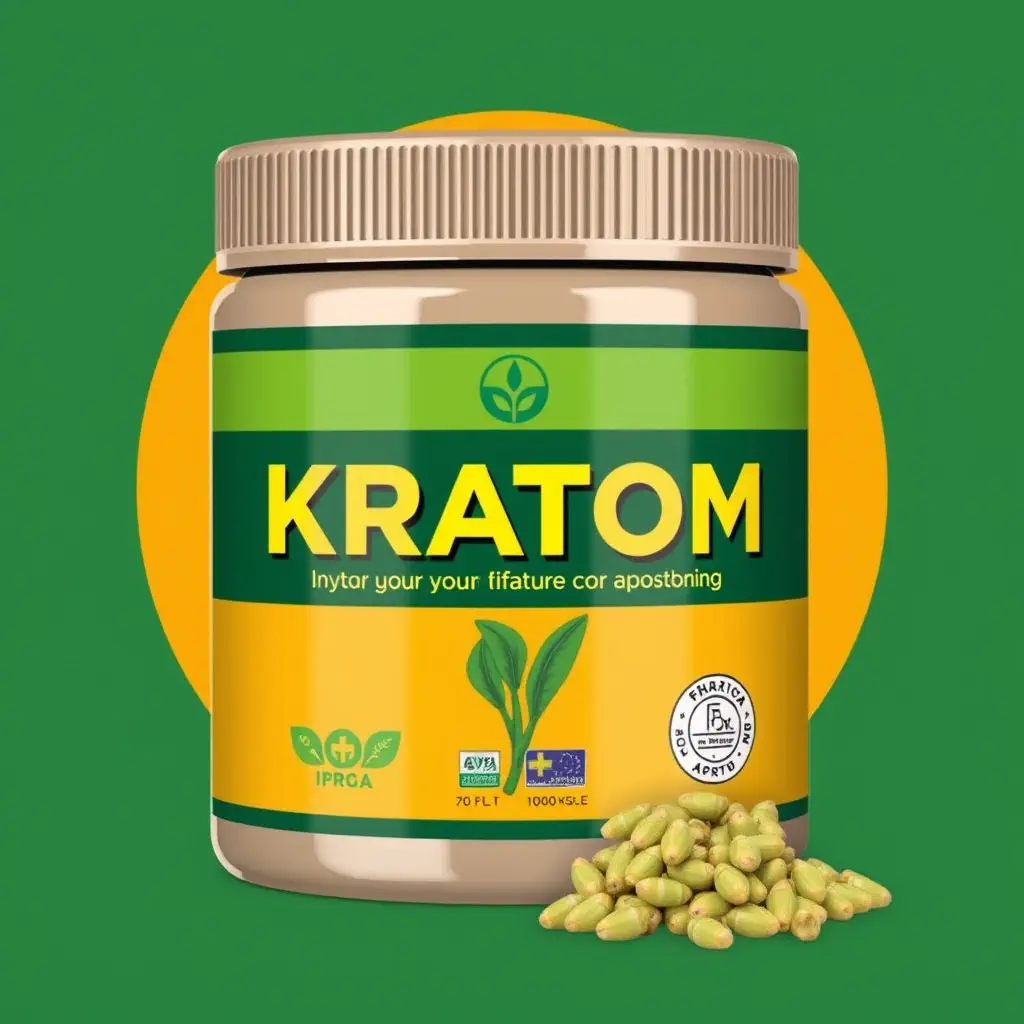Kratom, derived from Southeast Asian trees, is a natural product that has become popular for its stimulant effects due to alkaloids like mitragynine and 7-hydroxymitragynine. These compounds interact with opioid receptors to enhance mood and energy. However, there are concerns about its long-term use, as it may affect liver health, potentially leading to inflammation or damage, especially in individuals with pre-existing liver conditions or those taking other hepatotoxic medications. While scientific research presents mixed findings on kratom's impact on the liver, there is enough evidence to suggest that users should approach its consumption with caution and consult healthcare providers for medical evaluations of their liver function before starting kratom use. It is important to weigh the potential benefits against these health risks and consider the legal status of kratom in one's jurisdiction. The relationship between kratom and liver health remains an area of active research, emphasizing the need for informed decision-making and medical guidance when considering kratom as a supplement for energy regulation.
Exploring the nuanced relationship between natural energy boosters and overall vitality, this article sheds light on the role of kratom in enhancing energy levels. We delve into the scientific evidence regarding how kratom can influence your daily stamina, offering insights that may intrigue both enthusiasts and skeptics alike. A particular focus lies in addressing concerns about kratom’s effect on liver health—a critical aspect for those pondering its inclusion in their wellness routines. Additionally, we guide readers through the process of safely integrating kratom into a holistic energy strategy, ensuring an informed approach to this intriguing substance.
- Unveiling the Impact of Kratom on Energy Levels and Daily Vitality
- Kratom's Effect on Liver Health: What the Research Says
- Integrating Kratom into a Natural Energy Regimen: Precautions and Considerations
Unveiling the Impact of Kratom on Energy Levels and Daily Vitality

Kratom, a plant native to Southeast Asia, has garnered attention for its potential impact on energy levels and daily vitality. The effects of kratom are primarily attributed to its alkaloid content, particularly mitragynine and 7-hydroxymitragynine. These compounds interact with the body’s opioid receptors, which can lead to an uplifting of mood and a significant increase in energy levels. Users often report a sense of euphoria and increased alertness after consuming kratom, making it a popular choice for those seeking natural stimulation without the jittery side effects associated with caffeine or other traditional stimulants. However, the relationship between kratom and its effect on the liver has been a subject of scrutiny. Studies have shown that long-term use of kratom can potentially strain the liver, as it is metabolized by the same enzymatic pathways as many prescription drugs. Therefore, individuals considering kratom for energy enhancement should be aware of the potential hepatic implications and consult with healthcare professionals to monitor their liver health. It’s important to approach the use of kratom with caution and to consider any pre-existing conditions that may be affected by its presence in the body.
Kratom's Effect on Liver Health: What the Research Says

Kratom, a tropical evergreen tree native to Southeast Asia, has gained attention for its potential effects on energy levels and overall well-being. One significant concern regarding kratom use is its impact on liver health, given that many herbal supplements have historically affected this organ. The liver’s role in metabolizing substances ingested makes it particularly vulnerable to the effects of various compounds. Research into how kratom affects liver function has yielded mixed findings. On one hand, some studies have indicated that certain alkaloids present in kratom, such as mitragynine and 7-hydroxymitragynine, may have hepatotoxic potential, raising concerns about their long-term use. On the other hand, there is a lack of conclusive evidence to fully understand the extent of kratom’s impact on liver health, as research is still emerging and more extensive studies are required. Users of kratom should be aware of these preliminary findings and consider monitoring their liver health through regular medical check-ups if they choose to use kratom. It is crucial for individuals to consult with healthcare providers before incorporating kratom into their regimen, especially considering the broader context of their overall health and any other substances they may be taking.
Integrating Kratom into a Natural Energy Regimen: Precautions and Considerations

When considering the integration of kratom into a natural energy regimen, it’s crucial to be aware of its potential impact on overall health, particularly concerning liver function. Kratom, derived from the leaves of Mitragyna speciosa, has been traditionally used for its stimulant effects; however, its influence on the liver is an area of ongoing research. Reports and studies suggest that long-term kratom use may pose a risk to liver health as it can cause liver inflammation or damage in some individuals, as evidenced by cases of liver injury associated with kratom use. It’s important for potential users to be cognizant of this information and to approach the use of kratom with caution. Those interested in incorporating kratom into their daily routine should first consult with a healthcare provider, especially if they have pre-existing liver conditions or are taking other hepatotoxic substances. Regular monitoring of liver function through blood tests can be prudent, as can the adherence to recommended dosages and avoiding combining kratom with other substances that could further strain the liver. By taking these precautions and considering the potential risks, individuals can make an informed decision about whether kratom is appropriate for their natural energy regimen. It’s also advisable to be aware of the legal status of kratom in one’s jurisdiction, as its legality varies by region and may influence the availability and safety of the product.
In conclusion, the exploration of natural energy boosters has brought kratom to the forefront of discussions on enhancing daily vitality. The impact of kratom on energy levels is multifaceted and has been a subject of considerable interest, with a growing body of research highlighting its potential effects. However, it is imperative to approach its inclusion in one’s wellness regimen with caution, particularly regarding kratom’s effect on liver health, as the current research presents mixed findings. Balancing the energy-boosting benefits with careful consideration of hepatic health ensures a holistic and responsible approach to using kratom. Prospective users should consult healthcare professionals to navigate this complex topic and make informed decisions about incorporating kratom into their routines, always prioritizing overall well-being and safety.






